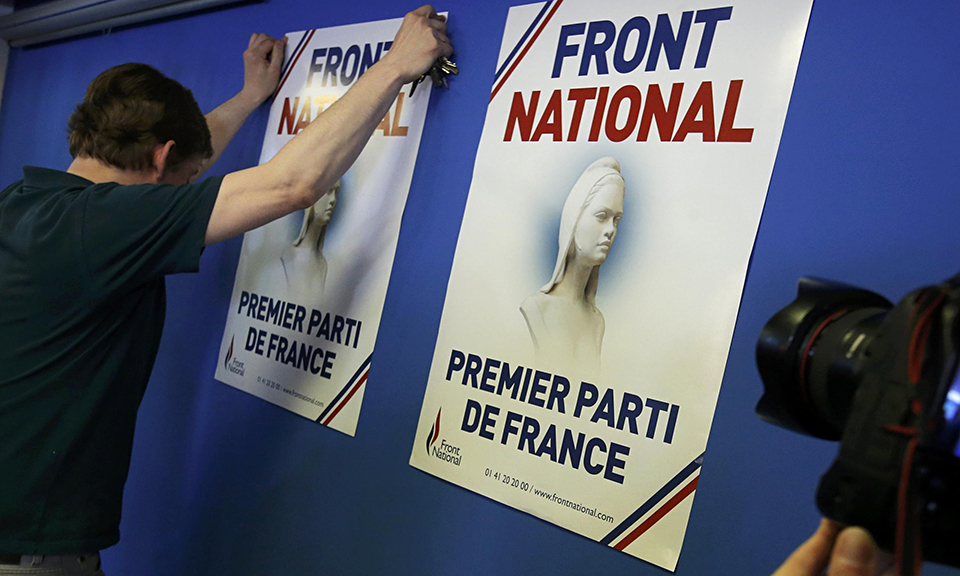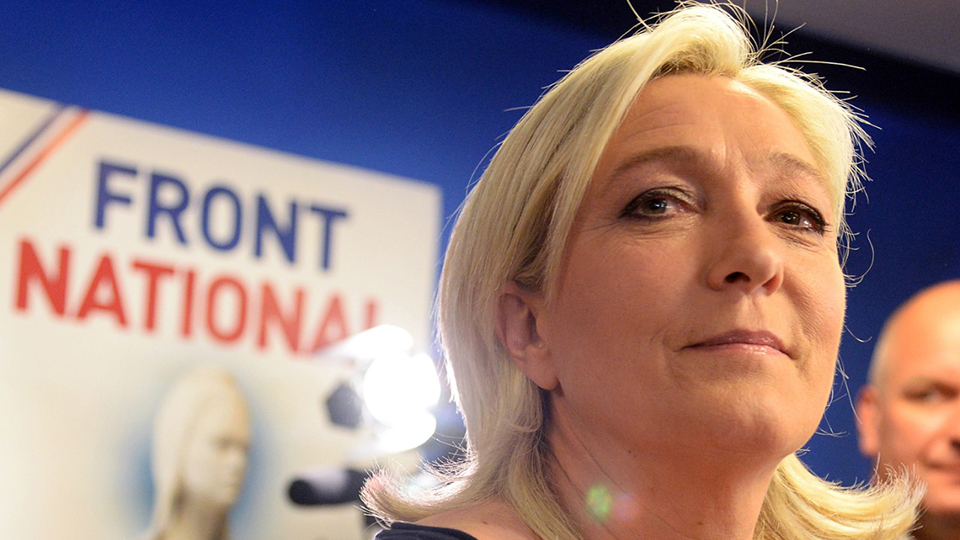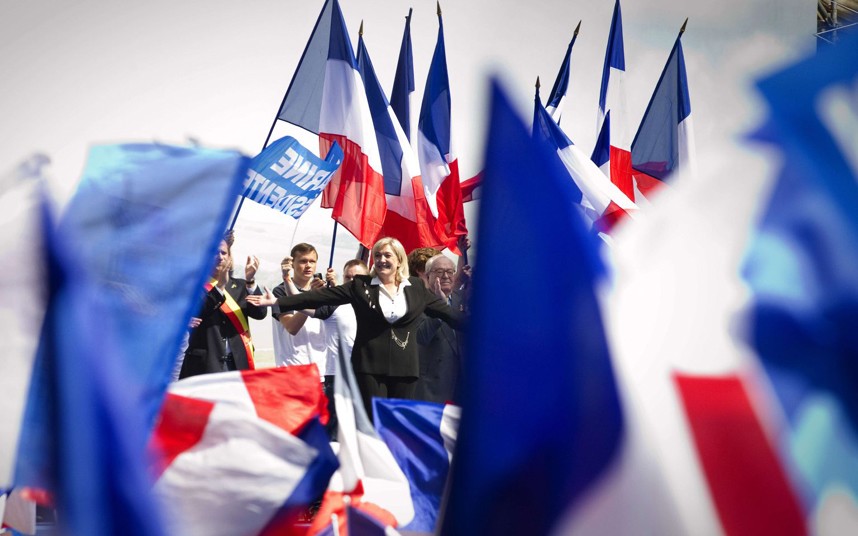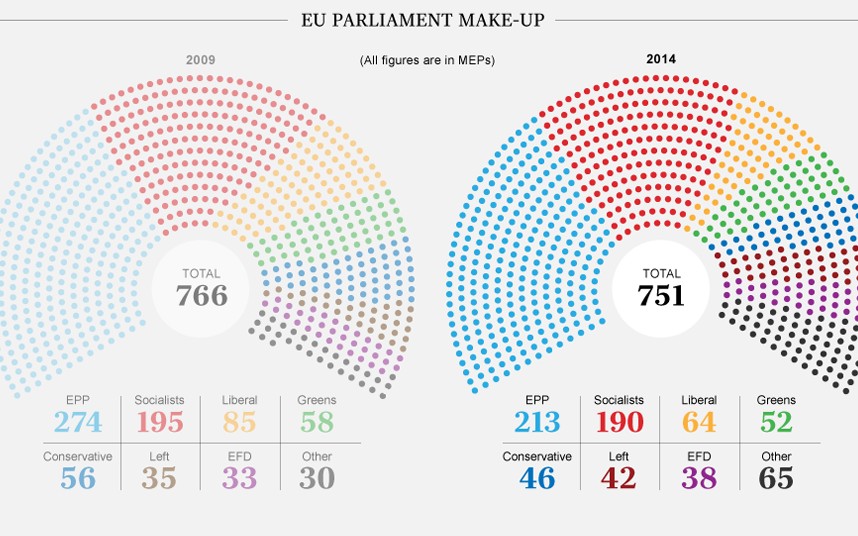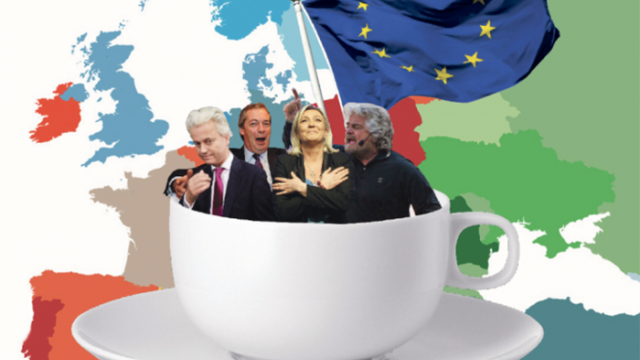
European Parliamentary elections fulfilled the worst fears for many this week as parties prophesying the fall of European culture to Islam and blaming immigrants for rising unemployment and squeezed public finances made dramatic gains across the continent.
A recurring theme seemed to be voters rejecting the European Union project in favor of national stereotypes – from the U.K. Independence Party's Nigel Farage and his tiresome appearances drinking bitter in local pubs, to the Front National's Marine Le Pen, the pragmatic Parisienne who likens herself to Joan of Arc.
Even Italy’s clean-cut young Prime Minister Matteo Renzi, whose Democratic Party was one of centrist politics’ few notable success stories over the weekend, appeared on the cover of this month's Vanity Fair looking every bit the Italian gigolo from a made-for-TV rom-com.
But the election results aren't so friendly as their imagemakers would have them appear. The ultra rightest National Front came out on top in France with 25% of the vote; UKIP did even better with 28% of the British vote, while the Danish People’s Party won with 27%. The neo-Nazi National Democratic Party, while taking just 1% of the German vote, will also enter the European Parliament for the first time alongside the openly fascist Golden Dawn, which took 9% of the Greek vote.
With unemployment topping 12% across the eurozone, and reaching highs of well over 50% among the youth in some countries, it's unsurprising that voters have turned away from the traditionally powerful center-right and -left parties. And while significant gains predicted for the far left failed to materialize – with the important exception of Greece’s Syriza – the far right demonstrated that the old formula of scapegoating the already marginalized continues to be a winner.
Much of the blame must be laid at the door of the mainstream political parties that refused to address the economic roots of Europe’s problems, instead turning on public spending, benefits fraud and the “failure of multiculturalism.”
But the right wing parties, particularly in northern and western Europe, have also worked hard to make themselves more palatable. There has been a shift from explicit racism to talking about culture – "It’s not your color we can’t abide, but your cultural practices" – again something the mainstream politicians have helped to normalize in recent years.
The trend has in turn seen some of those on the right embrace a degree of social liberalism, in opposition to the bogeyman of Islam. Geert Wilders attacks Islam for homophobia, while the banning of the burqa in France became an anti-Muslim move frequently recast as a feminist one. As well as parading token members from ethnic minorities, many far right parties have countered their thuggish image by including more high-profile female candidates – Le Pen being the most successful and prominent example.
Meanwhile, in southern Europe, the 20th century communist-fascist dichotomy remains close to the surface. Golden Dawn does little to mask its neo-fascist bent, while the Italian parliament has yet to rid itself of openly fascist lawmakers, and Spanish officials in the ruling People’s Party still publicly praise Franco.
The South has also seen the largest surges in left-radical politics since the euro crisis hit, with Greece’s Syriza embraced as perhaps the greatest beacon of leftist hopes across the continent. On the other hand, Italy’s “Tsipras List” of candidates for European Parliament – named for Syriza’s charismatic leader Alexis Tsipras, and billed as a bid to unite the country's hopelessly splintered left – failed to win a significant share of the vote.
In Spain, the left vote was split between the United Left and the new Podemos party – which arose from the 15M social movement that began in 2011 – meaning that no single party capitalized fully on declining popular support for the conservative People’s Party.
The divide in Europe between the traditional left and new grassroots movements is becoming a common theme. Unlike the right, the left has largely failed to update its image. Trade unions are seen as still plagued by a culture of sexism and suspicions of younger, grassroots activists. Meanwhile, more radical alternatives rejecting capitalist democracy as a wholesale failure have tended tend to steer clear of mainstream politics, failing to offer any alternative that's likely to resonate outside their introverted arenas of debate.
As a result, the fear-driven answers offered by the extreme right have been more easily conveyed and absorbed than the complex solutions from the left, which might actually help Europe emerge from its current crises. And the media attention that has followed the build-up of the right – inherently more frightening, and therefore more newsworthy than the left – translated into more airtime for those leaders to espouse their demagogic solutions.
But there has also been significant blurring of traditional left and right. Greece’s Golden Dawn has called for the nationalization of key industries, and France's National Front campaigned on welfare issues like safeguarding pensions; Le Pen has spoken out against the excesses of free market capitalism and accused “big bosses” of encouraging immigration in pursuit of cheap labor. In her victory speech, she said that the people “want to be protected from globalization.”
The Danish People’s Party also campaigned to protect the welfare state – even if it focused blame more on the supposed pressure caused by immigrants claiming benefits, than on the bad political decisions that led to drastic cuts in public services.
For the right, the issues boil down to “national” interests versus international and inclusive ones, ie. protecting “our jobs" and our welfare state from foreigners. At the same time, despite millions of Europeans taking to the streets in recent years to protest austerity measures and neoliberal reforms – and movements like Occupy and the Indignados springing up to draw in people from all walks of life – the left has failed to politically capitalize on its message of popular democracies challenging the free market economics of the 1%.
Paradoxically, this has allowed populists on the right to build core support on what should be the left’s home turf. There's nothing new about the far right claiming leftist territory: the Nazis were, after all, National Socialists, at least in name, as Hitler rose to power rejecting the impossibly harsh austerity imposed on Germany after its loss in WWI.
Despite their substantial win at the polls, the far right has not seized control of European Parliament. But the numbers demonstrate an urgent need for the left – and those in pursuit of a better, fairer Europe for all – to articulate a meaningful critique of failed neoliberal economics in a way that simultaneously embraces localism and diversity without retreating into bogus cartoons of static national identities. Otherwise, we can at best expect the mainstream parties to regain lost ground with a shift to the right and renewed faith in cynical populism – and at worst, a very dark future indeed.
3 WAYS TO SHOW YOUR SUPPORT
- Log in to post comments



